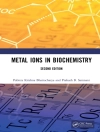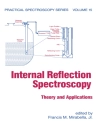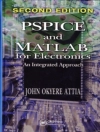Clearly divided into three main sections, this practical book familiarizes readers with the area of planning in petroleum refining and petrochemical industry, while introducing several planning and modeling strategies encompassing single site refinery plants, multiple refinery networks, petrochemical networks, and refinery and petrochemical planning systems. It equally provides an insight into possible research directions and recommendations for the area of refinery and petrochemical planning.
Furthermore, several appendices are included to explain the general background necessary, including stochastic programming, chance constraint programming, and robust optimization.
For engineers and managers working in the petroleum industry as well as academic researchers in production, logistics, and supply chain management.
Table des matières
PART I: Background
PETROLEUM REFINING AND PETROCHEMICAL INDUSTRY OVERVIEW
Refinery Overview
Mathematical Programming in Refining
Refinery Configuration
Petrochemical Industry Overview
Petrochemical Feedstock
Refinery and Petrochemical Synergy Benefits
PART II: Deterministic Planning Models
PETROLEUM REFINERY PLANNING
Production Planning and Scheduling
Operations Practices in the Past
Types of Planning Models
Regression-Based Planning: Example of the Fluid Catalytic Cracker
Artificial-Neural-Network-Based Modeling: Example of Fluid Catalytic Cracker
Yield Based Planning: Example of a Single Refinery
General Remarks
MULTISITE REFINERY NETWORK INTEGRATION AND COORDINATION
Introduction
Literature Review
Problem Statement
Model Formulation
Illustrative Case Study
Conclusion
PETROCHEMICAL NETWORK PLANNING
Introduction
Literature Review
Model Formulation
Illustrative Case Study
Conclusion
MULTISITE REFINERY AND PETROCHEMICAL NETWORK INTEGRATION
Introduction
Problem Statement
Model Formulation
Illustrative Case Studies
Conclusion
PART III: Planning Under Uncertainty
PLANNING UNDER UNCERTAINTY FOR A SINGLE REFINERY PLANT
Introduction
Problem Definition
Deterministic Model Formulation
Stochastic Model Formulation
Analysis Methodology
Illustrative Case Study
General Remarks
ROBUST PLANNING OF MULTISITE REFINERY NETWORKS
Introduction
Literature Review
Model Formulation
Sample Average Approximation (SAA)
Illustrative Case Study
Conclusion
ROBUST PLANNING FOR PETROCHEMICAL NETWORKS
Introduction
Model Formulation
Value to Information and Stochastic Solution
Illustrative Case Study
Conclusion
STOCHASTIC MULTISITE REFINERY AND PETROCHEMICAL NETWORK INTEGRATION
Introduction
Model Formulation
Scenario Generation
Illustrative Case Study
Conclusion
APPENDIX A: Two-Stage Stochastic Programming
APPENDIX B: Chance Constrained Programming
APPENDIX C: SAA Optimal Solution Bounding
A propos de l’auteur
Dr. Khalid Al-Qahtani is a senior process engineer at Saudi Aramco, Saudi Arabia. He holds a B.S. in Chemical Engineering from King Fahd University of Petroleum & Minerals and a Ph.D. in Chemical Engineering from the University of Waterloo. He worked for more than 10 years in the industry as a process engineer spanning the area of oil treatment, gas processing and refining operations. Dr. Al-Qahtani is a member in different scientific societies and published his work in several refereed journals and international conferences.
Ali Elkamel is a professor of Chemical Engineering at the University of Waterloo, Canada. He holds a B.S. in Chemical and Petroleum Refining Engineering and a B.S. in Mathematics from Colorado School of Mines, an M.S. in Chemical Engineering from the University of Colorado-Boulder, and a Ph D in Chemical Engineering from Purdue University. Prof. Elkamel’s specific research interests are in computer-aided modeling, optimization, and simulation with applications to the petroleum and petrochemical industry. Prior to joining the University of Waterloo, he was at Purdue University, P&G, Italy, Kuwait University, and the University of Wisconsin, Madison. He has also taught a number of short courses to industry, including optimization and cost awareness, quantitative decision making, computer-aided problem solving, refinery economics and planning, and practical process engineering. He has contributed more than 200 publications in refereed journals and international conference proceedings and serves on the editorial board of several journals, including the International Journal of Process Systems Engineering, Engineering Optimization, Int. J. Oil, Gas, Coal Technology, and the Open Fuels & Energy Science Journal.












